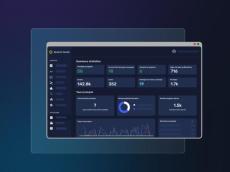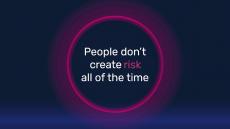Find out more about our products at: https://www.egress.com/products
Download your copy of the 2023 Email Security Risk Report here: https://egress.co/ufxrO
We recently caught up with Max Harper to get his view on why our partnership with Spear Shield - Cybersecurity Solutions (https://www.spearshield.co.uk) is off to a flying start 👌 We love our shared value of using great t
- December 2024 (3)
- November 2024 (1)
- October 2024 (2)
- August 2024 (1)
- July 2024 (1)
- June 2024 (2)
- May 2024 (2)
- April 2024 (1)
- March 2024 (2)
- February 2024 (2)
- January 2024 (7)
- December 2023 (4)
- November 2023 (8)
- October 2023 (1)
- September 2023 (1)
- August 2023 (2)
- July 2023 (4)
- June 2023 (11)
- May 2023 (3)
- April 2023 (3)
- March 2023 (7)
- February 2023 (3)
- January 2023 (1)
- October 2022 (1)
- August 2022 (6)
- July 2022 (9)
- June 2022 (12)
- May 2022 (1)
- March 2022 (2)
- January 2022 (5)
- December 2021 (3)
- November 2021 (5)
- October 2021 (3)
- September 2021 (8)
- August 2021 (10)
- May 2021 (1)
- January 2021 (1)
- December 2020 (1)
- November 2020 (2)
- October 2020 (6)
We’re all targeted by attacks. We all make mistakes. We all break the rules. After all, we’re only human. Make people your greatest defense with Human Layer Security, by Egress.
Our Human Layer Security platform combines contextual machine learning, powerful encryption and analytics technologies to prevent human-activated data breaches, protect sensitive data, and enable you to proactively monitor risk.
Egress Intelligent Email Security:
- Machine learning that stops email security breaches: Make sure you’re emailing the right content to the right people, every time. Our contextual machine learning analyses message content, recipients and domains all in real time to deeply understand user behaviour, spot anomalies and remove the risk of a costly breach.
- Beyond Microsoft 365 controls: Every 12 hours, organisations experience email security incidents that native controls in clients such as Outlook for Microsoft 365 can't mitigate. Using the latest in intelligent technology, we're able to detect email security risks and stop security breaches before they happen.
- Securing your digital transformation: The COVID-19 pandemic has accelerated digital transformation at an unprecedented rate. Our intelligent technology puts security at the heart of new digital communication processes, including email and secure file transfer, protecting you from non-compliance with regulations and litigation by data subjects.
The world’s only Human Layer Security platform.





















